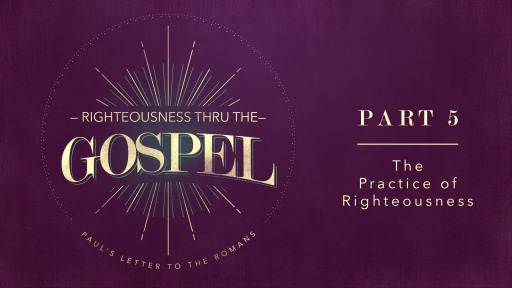Dealing with Disagreements - Rom. 14:1-12

As we’ve already seen, the major differences were between Jewish believers and Gentile believers. But there were other differences. Some believers were slaves, some were masters; some were wealthy, most were poor. In addition, they were all at different stages of spiritual maturity. Growing in the spirit is like growing physically—everyone grows at different rates as God works in each life. So the first instruction Paul gives the church is to accept, welcome, and love one another
A person’s faith is strong in an area if he or she can survive contact with sinners without falling into their patterns. The person’s faith is weak in an area if that individual must avoid certain activities, people, or places in order to protect his or her spiritual life.
